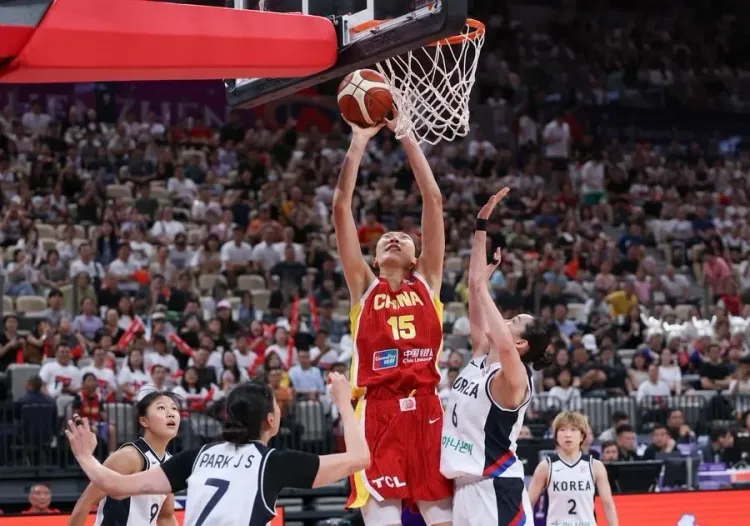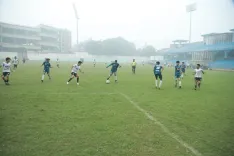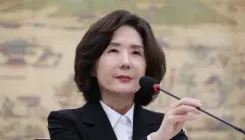Did China Dominate South Korea to Secure Bronze at FIBA Women's Asia Cup?

Synopsis
Key Takeaways
- China's strong start with key 3-pointers.
- Strategic lineup changes proved effective.
- Wang Siyu's scoring prowess was on full display.
- Emotional moments for veteran Huang Sijing.
- Preparation for the future with focus on younger players.
Shenzhen (China), July 20 (NationPress) China concluded its 2025 FIBA Women's Asia Cup journey in a commanding manner, defeating South Korea 101-66 during the bronze medal match on Sunday.
Motivated to end on a high note following a semifinal defeat to Japan, China came out strong with their shooting and quick transitions. Luo Xinyu and Yang Shuyu both made early 3-pointers, allowing the home team to jump to a 13-2 lead, as reported by Xinhua.
China continued to test different lineups, switching between a small-ball configuration without a center and a twin-tower strategy with Han Xu and Zhang Ziyu. These tactical shifts proved effective, as China managed to establish a 17-point advantage by the end of the first quarter.
In the second quarter, guard Wang Siyu took control offensively, navigating through South Korea's defense for layups and earning fouls. Under the pressure of China's defense, South Korea found it hard to score, leaning on mid-range jumpers and drives from Kang Yoo-lim. By halftime, China had extended their lead to a comfortable 58-29.
After halftime, South Korea introduced veteran center Park Ji-su. While her addition helped stabilize South Korea's offense, the towering 226cm Zhang ruled the paint on both ends, allowing China to widen the gap to 42 points, turning the final quarter into a formality.
Wang led the scoring with 19 points, followed by Zhang with 18 points, seven rebounds, and three assists, while Luo contributed 15 points.
For South Korea, Park Ji-su was the top scorer with 14 points and eight rebounds, and Choi I-saem contributed 10.
China's experienced forward Huang Sijing, who was emotional during the national anthem before the game, had poignant moments after the match.
"This could be my final opportunity to wear the national team jersey," Huang expressed. "Reflecting on my decade representing China, there have been both triumphs and regrets, but as I approach the end of my career, I feel immense pride."
While she voiced disappointment regarding the Asia Cup results, Huang acknowledged the team's transitional phase. "We are undergoing a generational shift, and adapting to a new coaching philosophy. Given our three months of preparation together, I believe we’ve made significant progress."
During the post-match conference, China's head coach Gong Luming referred to the Asia Cup as a "test" within the broader preparation for the 2028 Los Angeles Olympics. He also mentioned gaining tactical insights from Japan, Australia, and South Korea during the tournament—knowledge that he believes will be beneficial for the growth of younger players in China.
On discussing Zhang Ziyu's debut with the senior national team, Gong emphasized that there is still considerable room for her development. "She needs to enhance her strength in physical confrontations inside the paint," he remarked. Gong added that he hopes Zhang will expand her shooting range and evolve into a more versatile player capable of facilitating and passing effectively.








